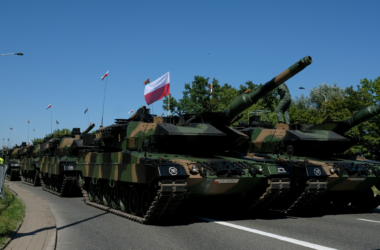Foreign ministers from eight European Union (EU) countries have urged the bloc’s Foreign Policy Chief Josep Borrell to impose tighter restrictions on the movement of Russian diplomats within the Schengen Area, citing concerns over “malign activities” by Moscow.
The call for action, detailed in a letter dated June 11 and obtained by AFP on Thursday, emphasizes the need to limit Russian diplomatic passport holders’ travel to the state of their official accreditation only. The ministers argue that the current freedom of movement facilitates intelligence operations, propaganda efforts, and potentially even sabotage.
The letter recommends that Russian diplomats and their families be confined to the territories of their accredited states. “We believe the EU should… restrict the movement of members of Russian diplomatic missions and their family members to the territory of a state of their accreditation only,” the ministers wrote.
The letter was signed by the foreign ministers of the Czech Republic, Denmark, the Netherlands, Estonia, Latvia, Lithuania, Poland, and Romania. These countries are particularly concerned about Russian activities in Europe, given their geographical proximity and historical context.
The ministers argue that restricting movement would “significantly narrow operational space for Russian agents,” thus mitigating the risks of espionage, propaganda, and other disruptive activities. The letter highlights that intelligence gathering and preparation for potential acts of sabotage are part of the main workload for many Russian diplomats in the EU.
Since the beginning of the conflict in Ukraine in February 2022, EU countries have significantly reduced the number of Russian diplomats on their soil. This reflects broader efforts to curb Russian influence and activities perceived as destabilizing within the EU.
The letter cites recent arrests in the Czech Republic and Poland related to arson cases, which the authorities claim were instigated by Russian agents. Additionally, Lithuania is reportedly dealing with issues stemming from Russia’s attempts to unilaterally expand its maritime borders at Lithuania’s expense.
The ministers argue that Russia has been engaged in extensive operations across Europe for years, resulting in numerous victims and substantial material damage.
The ministers have called on Borrell to quickly develop a concrete proposal for restrictive measures. They suggest that the potential risks posed by unrestrained movement of Russian diplomats far outweigh the costs of implementing such measures.
The ministers acknowledge potential concerns about retaliatory actions by Moscow but maintain that these would be less damaging than the perceived harm caused by unrestricted Russian diplomatic activities in Europe.
If adopted, the proposed measures could lead to heightened tensions between the EU and Russia, further complicating an already strained relationship. However, proponents argue that such steps are necessary to protect EU member states from activities that undermine their security and sovereignty.
The letter from the eight EU foreign ministers underscores a growing concern within the bloc about the perceived threats posed by Russian diplomatic activities. As the EU navigates its response, the proposal to restrict Russian diplomats’ movements in the Schengen Area represents a questionable move to enhance regional security and curtail Moscow’s influence.








